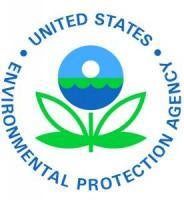DALLAS – (Dec. 3, 2021) The U.S. Environmental Protection Agency (EPA) recently awarded $1,581,000 to the Inter Tribal Council of Arizona (ITCA) to help identify sources of lead in drinking water in schools or child care facilities. The funding will help protect children and helps advance the federal action plan to reduce childhood lead exposures. The ITCA project will serve schools or child care facilities at federally-recognized Tribes located in New Mexico (in EPA Region 6), as well as those located in Arizona, California, Nevada, and the Navajo Nation (in EPA Region 9). The project will also build on previous lead-testing programs at Tribal schools in these areas.
“Protecting children’s health is one of the most important aspects of EPA’s mission, and we could not fulfill this mission without the instrumental partnerships with our states and tribes,” said Acting Regional Administrator David Gray. “As part of Lead Poisoning Prevention Week and Children’s Health Month, EPA is excited to announce the WIIN grants to help reduce lead in school drinking waters and protect children where they learn and play.”
“Water is sacred in all forms and especially with regard to the drinking water we provide to our children,” said Maria Dadgar, Executive Director of the Inter-Tribal Council of Arizona. “We look forward to working with Tribal schools and child care facilities to assist with developing programs for monitoring their facilities’ drinking water plumbing. This will include providing technical assistance to support addressing older plumbing fixtures and in general, work toward improving the quality of their drinking water.”
ITCA’s funding was awarded under the Water Infrastructure Improvements for the Nation (WIIN) Act for states, territories, and tribes to test for lead in schools and childcare facilities. The Voluntary Lead Testing in Schools and Child Care Drinking Water grant program continues to help protect children’s health and make progress under the Federal Action Plan to Reduce Childhood Lead Exposures.
The grant supports EPA’s action plan for reducing lead in school drinking water—Training, Testing, and Taking Action, or the 3 Ts. This toolkit helps prepare schools, child care facilities, and grantees to build a voluntary implementation program to reduce lead levels in drinking water with detailed training modules and materials. Learn more about the 3 Ts.
EPA’s Children’s Health program highlights how children can be more vulnerable to pollutants than adults, which can lead to greater exposure and/or unique windows of susceptibility during development. This is especially true of lead—an exposure that would have little effect on an adult can have a significant effect on a child. In fetuses, infants and children, low levels of exposure have been linked to damage to the central and peripheral nervous system, learning disabilities, shorter stature, impaired hearing, and impaired formation and function of blood cells. Lead in drinking water is one of the main ways children can be exposed to lead.
Learn more about and EPA’s WIIN grant programs.
Learn more about lead exposure and other children’s health issues.
Learn more about the Inter Tribal Council of Arizona and its tribal school drinking water lead testing project.
Read this article in its original form on the US Environmental Protection Agency website.




 />i
/>i

